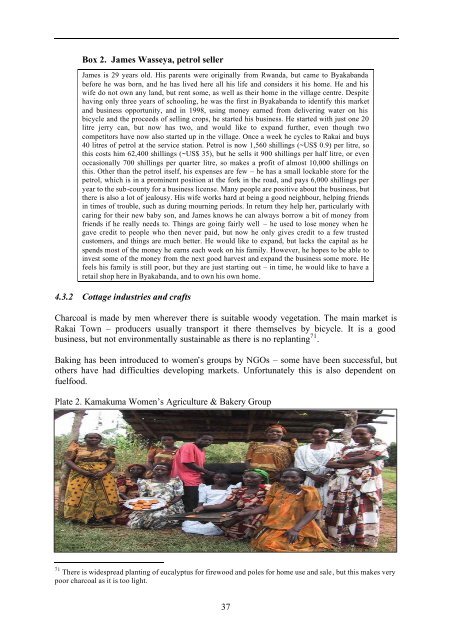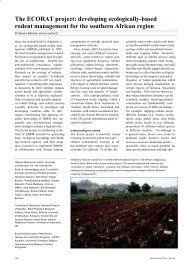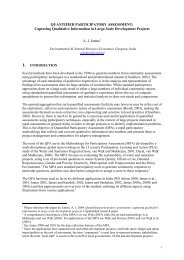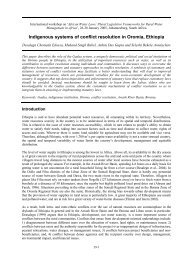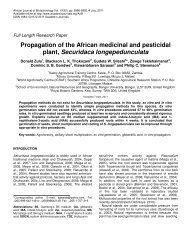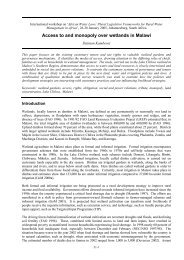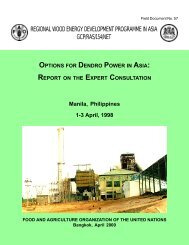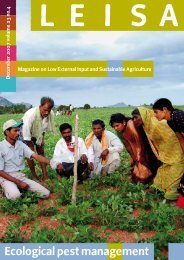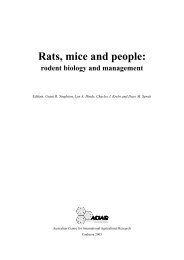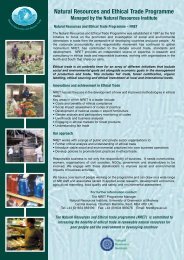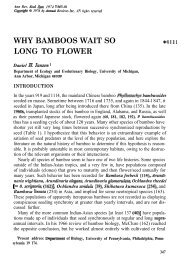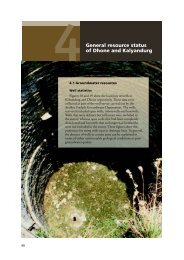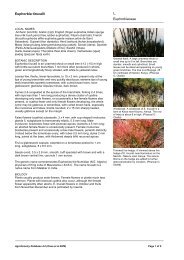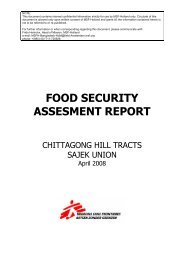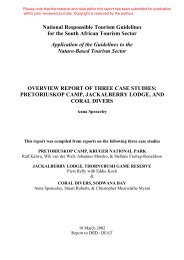Access to Rural Non-Farm Livelihoods - Natural Resources Institute
Access to Rural Non-Farm Livelihoods - Natural Resources Institute
Access to Rural Non-Farm Livelihoods - Natural Resources Institute
Create successful ePaper yourself
Turn your PDF publications into a flip-book with our unique Google optimized e-Paper software.
Box 2. James Wasseya, petrol seller<br />
James is 29 years old. His parents were originally from Rwanda, but came <strong>to</strong> Byakabanda<br />
before he was born, and he has lived here all his life and considers it his home. He and his<br />
wife do not own any land, but rent some, as well as their home in the village centre. Despite<br />
having only three years of schooling, he was the first in Byakabanda <strong>to</strong> identify this market<br />
and business opportunity, and in 1998, using money earned from delivering water on his<br />
bicycle and the proceeds of selling crops, he started his business. He started with just one 20<br />
litre jerry can, but now has two, and would like <strong>to</strong> expand further, even though two<br />
competi<strong>to</strong>rs have now also started up in the village. Once a week he cycles <strong>to</strong> Rakai and buys<br />
40 litres of petrol at the service station. Petrol is now 1,560 shillings (~US$ 0.9) per litre, so<br />
this costs him 62,400 shillings (~US$ 35), but he sells it 900 shillings per half litre, or even<br />
occasionally 700 shillings per quarter litre, so makes a profit of almost 10,000 shillings on<br />
this. Other than the petrol itself, his expenses are few – he has a small lockable s<strong>to</strong>re for the<br />
petrol, which is in a prominent position at the fork in the road, and pays 6,000 shillings per<br />
year <strong>to</strong> the sub-county for a business license. Many people are positive about the business, but<br />
there is also a lot of jealousy. His wife works hard at being a good neighbour, helping friends<br />
in times of trouble, such as during mourning periods. In return they help her, particularly with<br />
caring for their new baby son, and James knows he can always borrow a bit of money from<br />
friends if he really needs <strong>to</strong>. Things are going fairly well – he used <strong>to</strong> lose money when he<br />
gave credit <strong>to</strong> people who then never paid, but now he only gives credit <strong>to</strong> a few trusted<br />
cus<strong>to</strong>mers, and things are much better. He would like <strong>to</strong> expand, but lacks the capital as he<br />
spends most of the money he earns each week on his family. However, he hopes <strong>to</strong> be able <strong>to</strong><br />
invest some of the money from the next good harvest and expand the business some more. He<br />
feels his family is still poor, but they are just starting out – in time, he would like <strong>to</strong> have a<br />
retail shop here in Byakabanda, and <strong>to</strong> own his own home.<br />
4.3.2 Cottage industries and crafts<br />
Charcoal is made by men wherever there is suitable woody vegetation. The main market is<br />
Rakai Town – producers usually transport it there themselves by bicycle. It is a good<br />
business, but not environmentally sustainable as there is no replanting 71 .<br />
Baking has been introduced <strong>to</strong> women’s groups by NGOs – some have been successful, but<br />
others have had difficulties developing markets. Unfortunately this is also dependent on<br />
fuelfood.<br />
Plate 2. Kamakuma Women’s Agriculture & Bakery Group<br />
71 There is widespread planting of eucalyptus for firewood and poles for home use and sale, but this makes very<br />
poor charcoal as it is <strong>to</strong>o light.<br />
37


